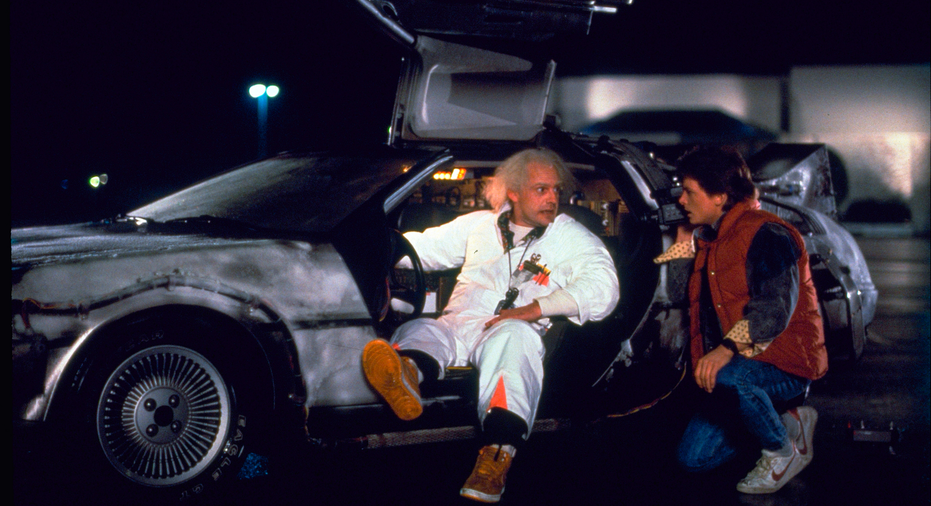Court tosses DeLorean widow's 'Back to the Future' lawsuit
This photo provided by Universal Pictures Home Entertainment shows Christopher Lloyd, left, as Dr. Emmett Brown, and Michael J. Fox as Marty McFly in the 1985 film, "Back to the Future." A federal court has dismissed a lawsuit brought by the widow of automaker John DeLorean over royalties stemming from the "Back to the Future" movies. Sally DeLorean claimed a Texas company using the DeLorean name had illegally accepted royalties from Universal Pictures for the promotional use of images of the iconic car. But a judge ruled Friday, Oct. 12, 2018, that a 2015 settlement agreement in a separate lawsuit over trademarks prohibited her from suing for the royalties. (Universal Pictures Home Entertainment via AP)
NEWARK, N.J. – A federal court has dismissed a lawsuit brought by the widow of automaker John DeLorean over royalties stemming from the "Back to the Future" movies.
Sally DeLorean claimed a Texas company using the DeLorean name had illegally accepted royalties from Universal Pictures for the promotional use of images of the iconic car. But a judge ruled Friday that a 2015 settlement agreement in a separate lawsuit over trademarks prohibited her from suing for the royalties.
The sleek, angular car with gull-wing doors was featured in the movie franchise starring Michael J. Fox about a kid who travels back in time to engineer his parents' meeting.
In her lawsuit filed in April, Sally DeLorean, who lives in New Jersey, claimed the Texas-based DeLorean Motor Co. had illegally profited from a 1989 agreement between her late husband and Universal. That agreement gave John DeLorean and his heirs 5 percent of net receipts for any merchandising and promotions that featured the car and logo "as a key component."
The Texas company isn't affiliated with the one John DeLorean started, but under the 2015 settlement agreement was allowed to use the DeLorean name and trademarks.
Sally DeLorean claimed in the current lawsuit that the Texas company had illegally represented to Universal that it had the right to the royalties and had already received "a substantial payment" from Universal. She argued in the lawsuit that the 2015 settlement didn't transfer contractual rights to the company.
In his opinion, U.S. District Judge Jose Linares wrote that the 2015 settlement agreement covers the Universal agreement even though it doesn't mention it explicitly.
"As both agreements apply to the use of the word 'DeLorean' and the DMC logo, and relate to the DeLorean automobile's image, the Court concludes that the subject matter of the agreements overlap," he wrote.
Attorneys for the two sides didn't respond to requests for comment Monday.
John Z. DeLorean left General Motors in the 1970s to start his own company and eventually produced the distinctive DMC 12, which became known simply as "the DeLorean."
Only about 9,000 of the cars were produced before the company went bankrupt in the early 1980s, but it attained cult status due to its inclusion in the "Back to the Future" movies.
DeLorean died in 2005. His former estate in the rolling hills about 50 miles (80 kilometers) west of New York was converted into a golf course by then-developer Donald Trump in 2004.





















